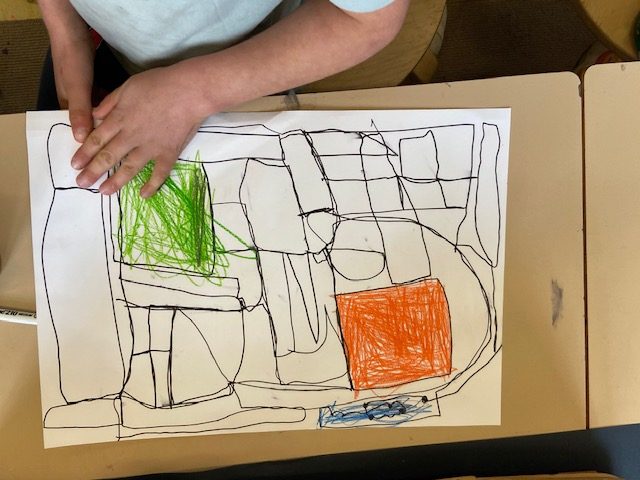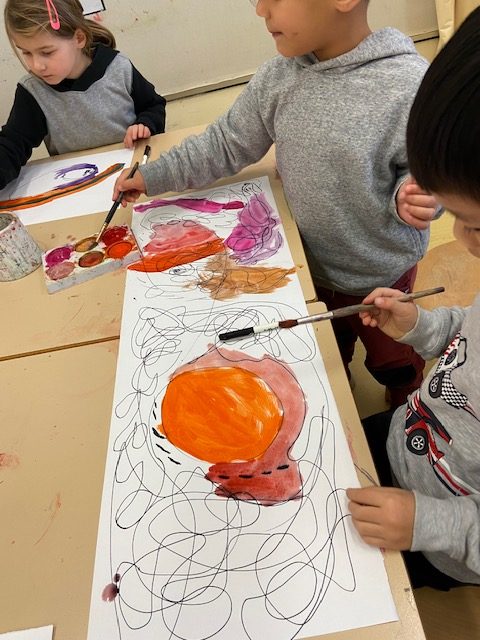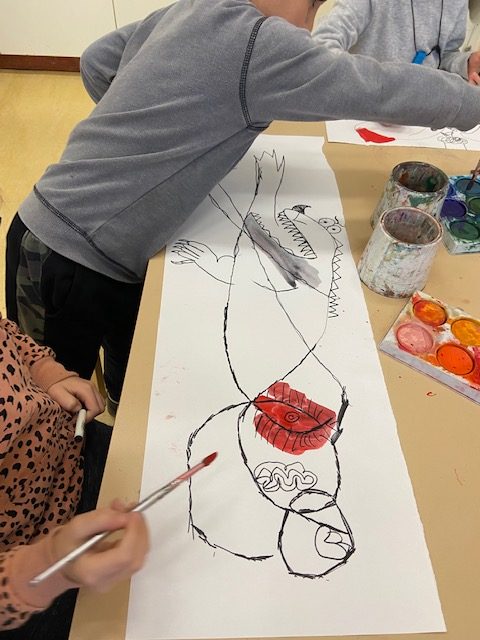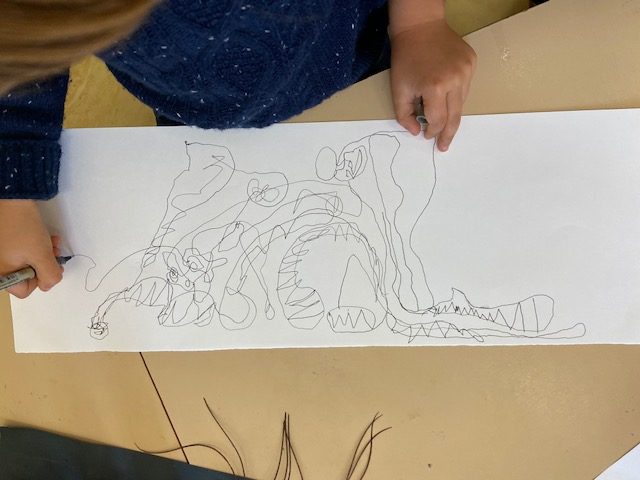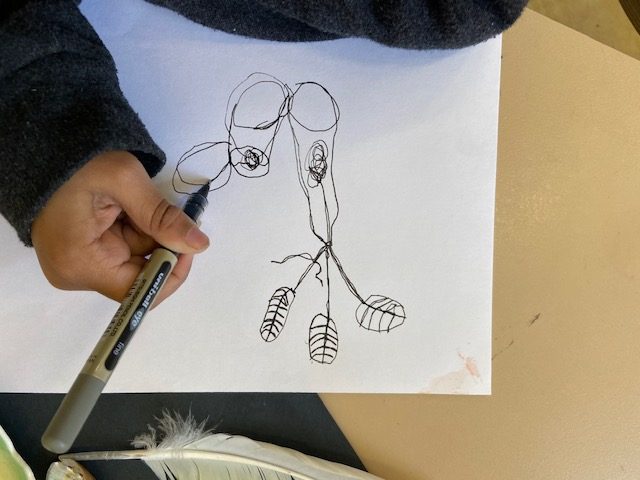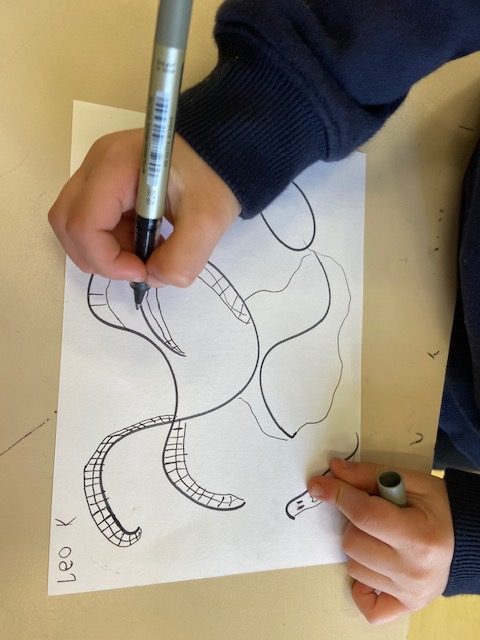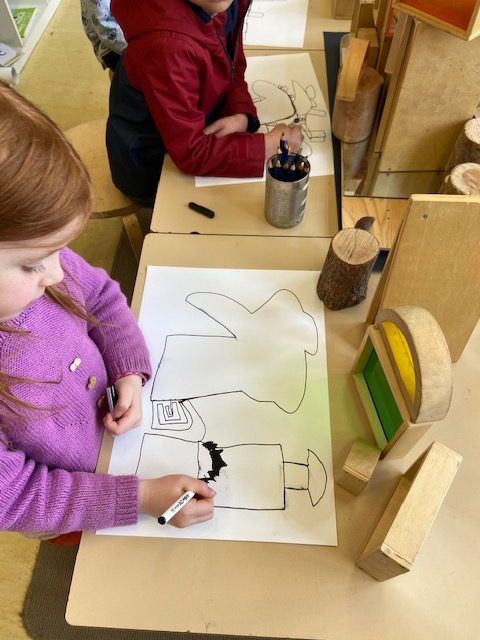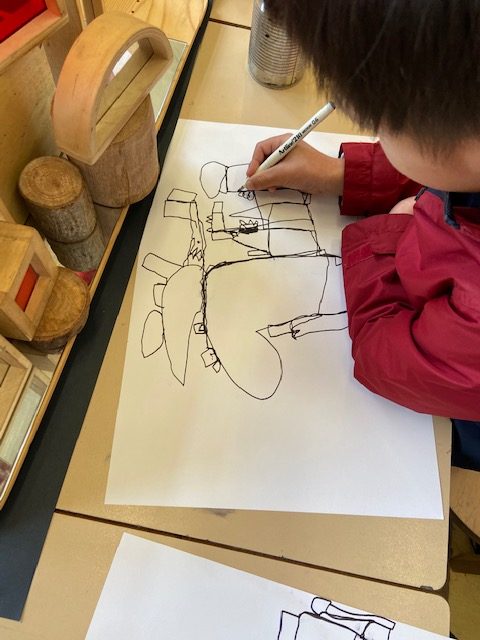Mistakes as Their Own Provocation
The journey of learning about creativity has led the Prep neighbourhood to explore what happens in our brain and how the human brain functions, the role of our environment and communities in inspiring us to view the world differently and explore its possibilities; and most recently to explore the role of mistakes in learning. Mistakes have become their own provocation.
As the students began to observe their own mistakes in their learning, we unpacked what they thought a mistake was…
What is a mistake?
“Sometimes when you make mistakes it doesn’t turn out…” Chiara
“When you do something and it doesn’t turn out the way you want or think.” Leo B-L & Emily
“(a starting point) you can turn it into something.” Agnes
“I think a mistake is when you do something, but it wasn’t really what you thought and you can’t…but actually x rays were made by mistake!” Dale
“Accidentally, doing something wrong.” Eve
“Messing your brain up. Your brain is thinking, but of the mistakes.” Charlie
“When you mess up your painting. I’ll do another one the same.” Ava
“When you do something wrong but start again and do it the right way.” Owen
“You didn’t mean something that you did wrong.” Leo
“When you do something wrong but it is an accident. Eben
“When you do something wrong, you can do it right again.” Jaya
“You make a mistake and then do it properly again.” Aaran
“You try and fix it but sometimes it might not work.” Saskia
We realised that mistakes could be an opportunity to develop our creativity, that a mistake might reveal something completely different that was not part of our original plan; or a mistake might be a chance to reflect and try again. These realisations began to divulge a range of feelings, so we began to explore these emotions further.
How do you feel when you make a mistake?
“ I just feel normal!” Dale
“Creative and surprised!” Matilda
“Sometimes I feel sad…sometimes I think of something else!” Nina
“Sad that that’s not what I wanted to do.” Emily
“I feel confused.” Chiara
“Mistakes make me angry, Nellie!” Arlo
“Good, because I have learnt from it.” Eve
“Sad, because I wanted to be right.” Ava
“I get a bit worried because when I make a mistake, I think it will get worse.” Louis M
“I feel happy and bad because I don’t like mistakes but I start over again and again if I make another one.” Owen
“I feel uncomfortable.” Arlo M
In our collaborative efforts to understand why we feel differently about mistakes and what mistakes mean for us, we have begun to grasp the potential for us to use mistakes to our advantage and support each other in our learning.
“How our children handle the ‘small knocks’ is crucial as these will be the foundations for much bigger things.” Michelle Mitchell, author of Everyday Resilience
What can you do when you make a mistake?
“You can make your mistake into something new, or you can go to another part of your page.” Dale
“It’s ok to make a mistake, you can fix it up … how I want it to be.” Dexter
“You could just flip the page over and start again.” Leo B-L
“I feel sad when I make a mistake so I ask mum or dad for help.” Frankie M
“I feel happy because someone will cheer me up.” Louis M
“I feel happy because I learn from it and know not to do it again.” Eve
“I feel worried and ask for help from my parents and teachers.” Elliot
During a workshop last week, some of the children communicated that while they acknowledge that mistakes can be fun, constructive and important parts of our learning, however, they still experience a range of unsettling emotions upon making a mistake. Some students connected strongly with being worried, however, they agreed that it would be more helpful if we felt positively upon making a mistake. Each group offered and trailed a statement of encouragement that they could share with a peer when they make a mistake. The statements included, “Wow! That’s beautiful!”, “Let’s make that into something even better!”, and “We can learn from it!”.
As educators, we are witnessing the agency in the moments in which students recognise their mistakes and take responsibility for developing new possibilities or plans for next attempts. There is an excitement in the independence and collaboration these moments offer, but even more interestingly there is evidence of courage and a new sense of resilience being forged in students.
“ Like a muscle that we strengthen, resilience will grow with each small choice our children make.” Michelle Mitchell, author of Everyday Resilience
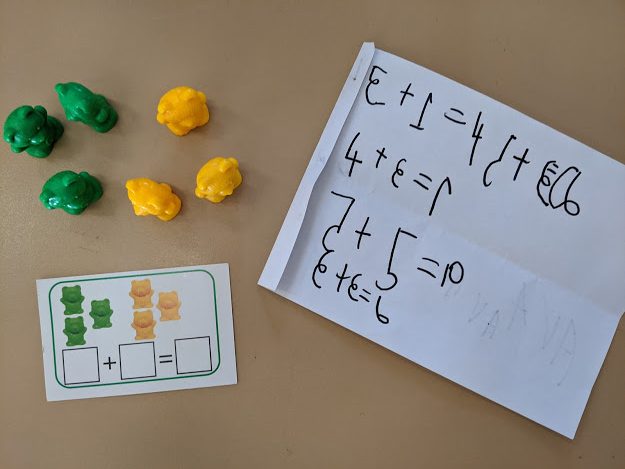
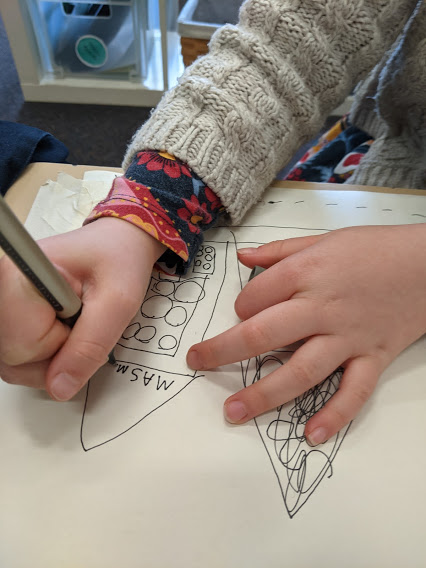
Astrid sounding out and writing, ‘marshmallow’ for her city store 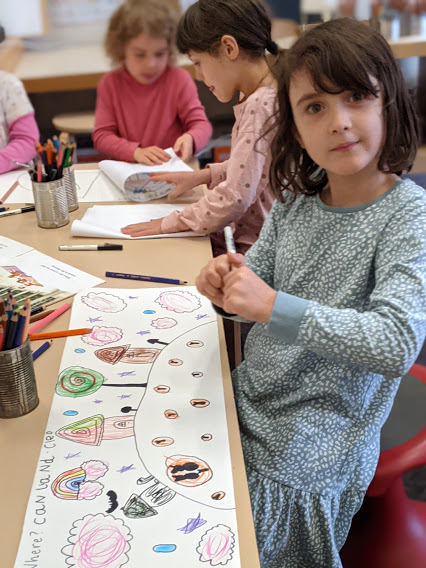
Cleo creating an imaginary setting, ‘Candy Land’ featuring sweets 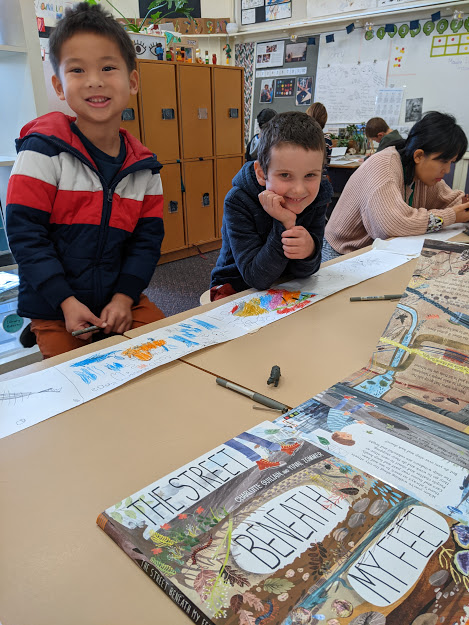
Guy and Arlo working on layers beneath our earth’s surface

